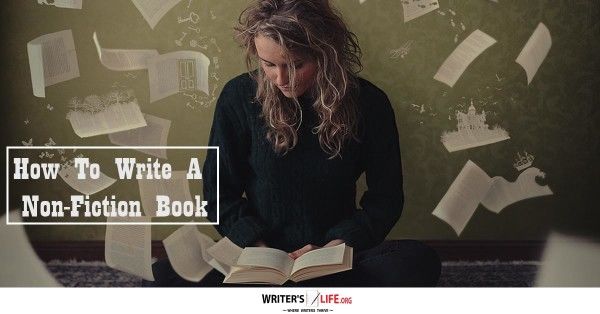- How To Tackle Jealousy In Creative Writing
- Common Submission Mistakes
- How To Stop Your Blog Becoming Boring
- The One Thing Every Successful Writer Has In Common
- How To Make Yourself Aware Of Publishing Scams
- Why Almost ALL Writers Make These Grammar Mistakes At Some Point
- 5 Tips For Authors On How To Deal With Rejection
- Top Mistakes to Avoid When Writing a Novel
- How to Avoid Common New Writer Mistakes
- 10 Mistakes New Fiction Writers Make
6 Ways to Finish a Non-fiction Book

Writing a non-fiction book can be just as tricky as attempting to write fiction. While the two are very different, writing non-fiction brings with it its own difficulties, and ensuring that you get it right can be a challenge.
If you are hoping to write a non-fiction book, but not sure where to start, take a look at these handy tips which will guide you through the process.
What is your end goal?
Having a clear end goal in mind will help you focus on what you need to do to get there. Some people simply want to write a book that they hope readers will find interesting, informative or helpful.
Others, however, have more specific goals in mind - they want to win a prize, they want to be celebrated as an authority on that particular subject, or they want to sell X number of copies or make X amount of money. Understanding what will satisfy you is important as you can plan and strategise so you achieve your goal.
What is your book about?
Here, it is important to be specific. Understanding your books themes will help you when it comes to writing it. Whether you are an expert historian or have simply discovered a new way of dieting and exercising that you want to share with the world, you need to have a firm idea of where you book will sit in the marketplace.
Once you know this then the best thing you can do, before you start writing, is read.
Reading what other people have written around the same or similar topics as you will not only help you identify and understand the competition but will also ensure that there is something unique about your idea that therefore makes it worth publishing.
Lastly, and perhaps most importantly, reading other works will help you get a feel for the ebb and flow of the book, the language that is used, how the content in presented, how the writing speaks to the reader. This will help you understand how to shape your own work and write in a way that engages your audience.
Brainstorm and research
Once you have thoroughly read around your topic you need to brainstorm all your ideas for yours, and then shape these into a table of contents. Once you have done that you are ready for the research stage where you should try to find out absolutely everything you can about your topic.
Take your time with this stage - learning as much as you can about your subject will help you feel confident about what you are writing, and get you thinking about how you can present that information in a new and interesting way. However, it is also important not to get stuck in this phase for too long- remember you do actually have to write your book!
Start writing
Beginning the writing process can feel daunting, but if you have done thorough research and firmed up your table of contents you should, at this stage, feel confident you know what you are writing about, and what the book should include.
You don’t have to write it in chronological order, but be sure to finish each chapter or section before you go back and begin to edit. The editing stage can again take some time - it is often helpful to read your book out loud to help you spot any errors and check that it flows well.
Decide on a title and book cover
Picking a great title for your book is also important. Look at the 100 top performing books in your category and use these to influence your decision. You want something clever and catchy and a cover that helps your book stand out. Often with non- fiction it is helpful to make it clear what the contents of your book will be in the title and cover, while also remaining original and interesting.
Once you have done this, congratulations, you have finished your non-fiction book! Now it is time to get it out there and build your audience - good luck!



























